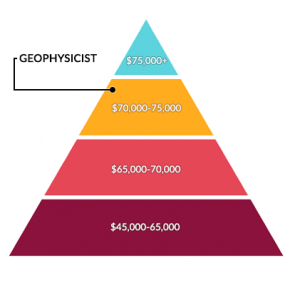All Categories
Featured
Table of Contents
What Is A Geophysicist? in Riverton WA 2021

Other possible geophysicist majors that aren't geophysics or geoscience include: Atmospheric sciences and meteorology Chemical and physical oceanography Earth science Environmental science Hydrology and water resources science Products science By earning any geophysicist degree, and by taking the required geology courses, you need to certify for an entry-level position as a geoscientist or geophysicist.
Ultimately, trainees should learn: a branch of geology that takes a look at the various aspects of minerals, including chemical structure, internal crystal structure, and physical residential or commercial properties. the research study of rocks and the processes and conditions that form and transform them over time. There are a couple of subdivisions in this branch of geology, consisting of igneous, metamorphic, and sedimentary rocks.

This field takes a look at structural rock features such as cleavage, faults, joints, and small folds. They need to also find out the computer system abilities necessary to: examine information develop digital designs and maps operate geoscientists' software Students must likewise make the most of all chances to get real-world experience. Hopeful geophysicists need to anticipate to hang out knowing: in the classroom in the field in labs Obviously, skills taught in the class are very important for aspiring geophysicists.
Geophysical Survey And Investigations in Osborne Park Aus 2021
Geoscientists invest a lot of their time outside when working in the field, so they must have "outdoor abilities" like camping and running boats, aircraft, and other lorries. Due to the fact that they spend a lot time in remote locations, it's essential that geophysicists also have the physical endurance to bring needed equipment on their walkings to locations of study.
The job offers: a high median and top profits a high rate of individual complete satisfaction among geophysicists low work stress positive task outlook Further info on incomes capacity and task outlook is detailed below. For trainees wanting to land an entry-level function as a geoscientist or geophysicist, it takes four years, or the time required to complete a bachelor's degree in geophysics or an associated discipline.
Some research study positions in geophysics need postgraduate degrees. Likewise, if you plan to teach at a college or university, you should earn a Ph - Geophysicist Salary in Wembley Western Australia 2020. D. in geophysics or a related field. The time it requires to make a Ph. D. varies by organization and program, however it generally takes four to 6 years beyond the bachelor's degree.
Geoscience, Geophysics Option, in Roleystone WA 2022
Many employers require candidates to have a bachelor's degree in geophysics or a carefully related discipline for all entry-level positions. As an outcome, there's no method around the degree requirements for becoming a geophysicist.
Currently, 31 states need licensing for geologists, although licensing is not always required, particularly for entry-level work. The states that do concern licenses use the Principles of Geology Exam (FGE), which is administered through the National Association of State Boards of Geology (ASBOG). Now that you understand which degree for geophysicist tasks you require, you'll require to land a task, and it is very important to find out how much cash you can make in this profession.
According to BLS, the median annual wage for geoscientists is $93,580. The most affordable 10% of earners make less than $52,000, while the highest 10% earn more than $201,000 every year. Incomes fluctuate by market type and geographical place. According to BLS, particular industries use greater salaries for geoscientists, and sometimes, they offer higher-than-average profits.
Geophysical Surveying And Mapping Services (Geology ... in Kiara Australia 2020
Mining, quarrying, and oil and gas extraction offers over $32,000 more annually than the average yearly wage for this profession. The federal government, too, provides over $10,000 more in profits than the national average for geoscientists. In addition to industry type, geographical location can significantly affect incomes for this occupation.

The top-paying states and their annual mean salaries, according to the BLS, consist of: Texas $166,720 Oklahoma $149,630 Pennsylvania $120,590 Hawaii $120,130 Colorado $107,260 These five top-paying states provide much greater earnings than the average for this occupation. In fact, salaries for geoscientists in Texas are over $73,000 higher than the national average.
It needs to come as not a surprise that most of these high-paying locations are in Texas and Oklahoma, but some are found in California, Louisiana, and Colorado. The top 10 highest-paying metro areas for geoscientists are: Houston-The Woodlands-Sugar Land, Texas: $188,400 Tulsa, Oklahoma: $186,490 Midland, Texas: $167,040 Odessa, Texas: $147,080 Oklahoma City, Oklahoma: $145,350 Bakersfield, California: $130,080 Urban Honolulu, Hawaii: $124,470 New Orleans-Metairie, Louisiana: $121,030 Washington-Arlington-Alexandria, DC, VA, MD, WV: $120,180 Denver-Aurora-Lakewood, Colorado: $116,910 For some geoscientists and geophysicists, living in a metro city is not as attractive as living in a smaller sized neighborhood.
Latest Posts
Geophysical Survey Definition in Bayswater Oz 2023
Geophysical Surveys: Definition & Methods in Ardross Australia 2020
What Is Geophysics And What Do Geophysicists Do? in Maddington WA 2023